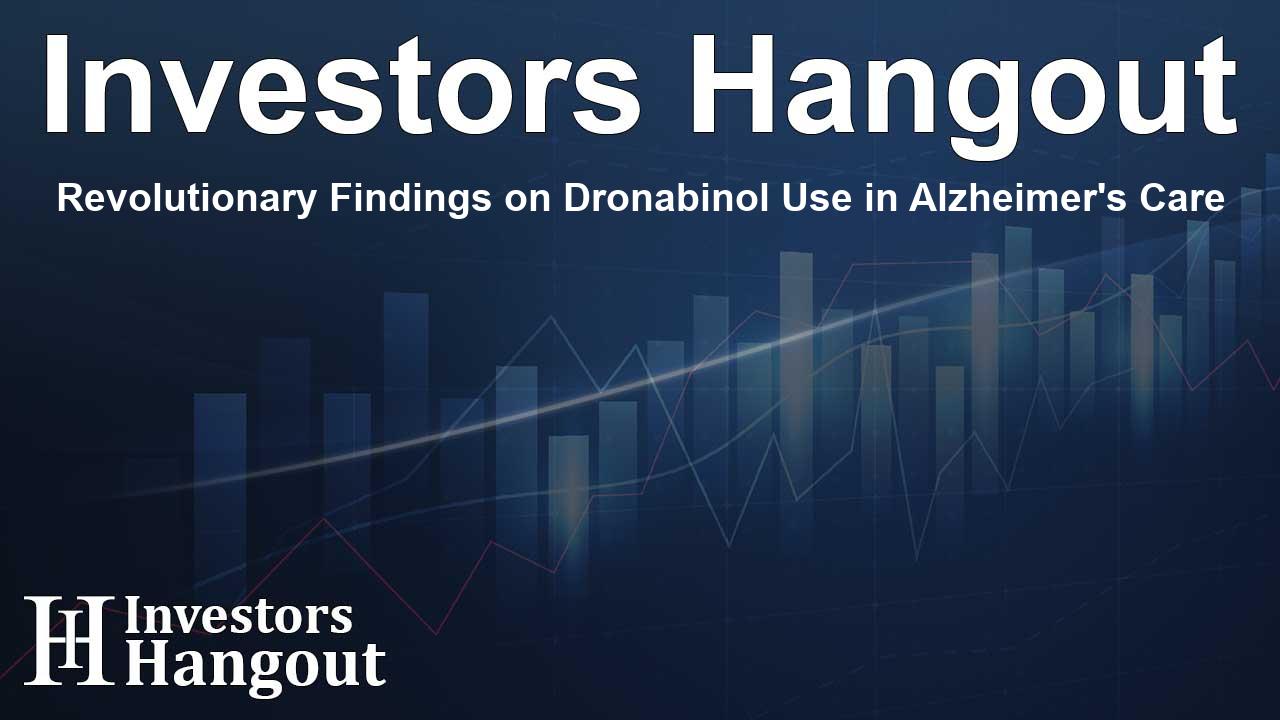Revolutionary Findings on Dronabinol Use in Alzheimer's Care

Revolutionary Findings on Dronabinol Use in Alzheimer's Care
A recent study highlights the potential benefits of dronabinol, a synthetic form of THC, in reducing agitation in Alzheimer's patients. This groundbreaking research has drawn attention for its implications in transforming care practices in the face of Alzheimer’s disease.
What is Dronabinol?
Dronabinol is a man-made version of THC, one of the main components found in cannabis. Unlike its natural counterpart, dronabinol is utilized in a controlled form to manage specific medical conditions. The study presented at an international conference emphasizes dronabinol's capability to help Alzheimer’s patients by minimizing their agitation levels.
Understanding Agitation in Alzheimer's Patients
Alzheimer’s disease affects millions, particularly those aged 65 and older. With the current statistics showing around 6.7 million patients in the U.S., forecasts predict a significant increase to 13.8 million by 2060. A concerning aspect of this disease is agitation, prevalent in approximately 40% of those affected. Symptoms include uncontrollable movements, vocal outbursts, and even aggression.
Expert Insights on Agitation's Impact
Dr. Paul Rosenberg from Johns Hopkins University noted, “Agitation is one of the most distressing symptoms of Alzheimer's dementia.” His remarks underline the importance of advancing treatments that address this particular symptom, thus enhancing patients' quality of life and paving the way for improved caregiving strategies.
Assessing the Clinical Trial
The clinical study recruited 75 participants dealing with severe agitation linked to Alzheimer's from various research sites, with 35 patients coming from Johns Hopkins Hospital. Participants were required to exhibit significant agitation symptoms for two weeks prior to entry.
In a randomized design, the participants were assigned to receive either dronabinol or a placebo for three weeks. Those taking dronabinol experienced a remarkable 30% decrease in agitation, as indicated by scores measured on the Pittsburgh Agitation Scale, dropping from 9.68 to 7.26.
The Ripple Effect on Caregivers
Agitation not only burdens the patients but also significantly impacts caregivers. Often leading to additional stress, emergency room visits, or even long-term care, the need for effective agitation management is critical. Dr. Brent Forester, another key investigator in the study, emphasized that the agitation is a primary driver for Alzheimer’s patients needing urgent care. He believes that reducing agitation through dronabinol can lower healthcare costs and enhance caregiver well-being.
Benefits Beyond the Patient
This promising finding not only aims to improve quality of life for patients but also seeks to alleviate the heavy burdens shouldered by caregivers. Reducing agitation may limit the necessity for emergency interventions, ultimately fostering a more supportive and manageable environment for patients and families alike.
Future Implications and Perspectives
The insights gained from the recent research have broader implications for treatment policies in dementia care. As the medical community continues to explore the efficacy and safety of cannabis-based therapies, dronabinol might pave the way for more innovative solutions for managing Alzheimer’s disease.
Frequently Asked Questions
What is the main finding of the recent study on dronabinol?
The study found that dronabinol significantly reduces agitation symptoms in Alzheimer's patients, with an average decrease of 30% in measured agitation scores.
How many Alzheimer's patients were involved in the study?
Seventy-five Alzheimer's patients experiencing severe agitation participated in the clinical trial.
What are the potential benefits of using dronabinol?
Dronabinol could lower agitation levels in patients, enhance caregiver well-being, and reduce healthcare costs by decreasing the need for emergency interventions.
Why is agitation a major concern in Alzheimer's care?
Agitation affects a large percentage of Alzheimer's patients, creating distress not only for them but also for caregivers. It can lead to increased medical visits and need for long-term care.
What are the implications of this research for future treatments?
The promising results for dronabinol suggest a need for further exploration of cannabis-based therapies in managing Alzheimer's symptoms, possibly influencing future treatment guidelines and practices.
About The Author
Contact Addison Perry privately here. Or send an email with ATTN: Addison Perry as the subject to contact@investorshangout.com.
About Investors Hangout
Investors Hangout is a leading online stock forum for financial discussion and learning, offering a wide range of free tools and resources. It draws in traders of all levels, who exchange market knowledge, investigate trading tactics, and keep an eye on industry developments in real time. Featuring financial articles, stock message boards, quotes, charts, company profiles, and live news updates. Through cooperative learning and a wealth of informational resources, it helps users from novices creating their first portfolios to experts honing their techniques. Join Investors Hangout today: https://investorshangout.com/
The content of this article is based on factual, publicly available information and does not represent legal, financial, or investment advice. Investors Hangout does not offer financial advice, and the author is not a licensed financial advisor. Consult a qualified advisor before making any financial or investment decisions based on this article. This article should not be considered advice to purchase, sell, or hold any securities or other investments. If any of the material provided here is inaccurate, please contact us for corrections.
